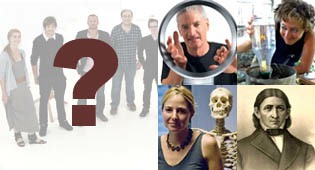












name
Jerome Bruner b.1915
working life
1945 -
essentials
Prof. of psychology at Harvard University USA, and University of Oxford UK. He lead the development of cognitive science, in direct contradiction to behaviourism. His research focused on perception, learning, memory and language, especially in young children. He proposed that the child is an active learner of concepts and procedures for problem-
Later, in 1995, Bruner visited the Reggio Emilia Atelier preschools and was deeply impressed with their methods which seemed to reflect his ideas and research on early childhood development and learning. He established a collaborative relationship with them to improve educational systems internationally.
info
In the late 1960’s Bruner developed the idea of a “spiral curriculum” where an area of study starts from what children already know, moving from the simple to an increasingly deep and complex treatment of the topic. He used the term “scaffolding” to describe the way children often build on the information they have already mastered.
Bruner also focused research on early language development. He proposed that social interaction plays a fundamental role, emphasising that children learn language in order to communicate through meaningful interactions with adults, learning the linguistic code at the same time.
He came to feel that cognitive science primarily focused on the logical, systematic aspects of mental life -
books
• The Process of Education by Jerome Bruner
first publ. 1960 -
• Towards a Theory of Instruction by Jerome Bruner
first publ. 1966 Harvard University Press new edition 1974 -
• The Hundred Languages of Children: Reggio Emilia Approach -
first publ. 1998 -
see more:
• Wikipedia entry for Jerome Bruner
https://en.wikipedia.org/wiki/Jerome_Bruner